Home > Best of Nanotechnology > 2002
Best Nanotechnology Sites of 2002
Over the past year, the team at Nanotechnology Now has tracked the thousands of websites and individuals that work in the nanospace. We visit them virtually every day, reading their news, opinions, and stories, and keeping track of how well they present information. Selected from the whole, the ones you see below are - in our opinion - the best at offering current information, as well as informed speculation.
While there are undoubtedly other people and websites that would get your vote, we hope you will appreciate our list. If you have another favorite, please
us and it will be reviewed for our "Best of 2003".
A twice monthly webpage and voice report, dealing with the topics, events, and science of the day, and theorizing about possibilities. Jeffrey R. Harrow does an outstanding job of putting it all together for us, and presenting it in a way that is easy to understand. He stimulates the mind, piques the curiosity, and generally gets you more interested than you were before you came to the party. You can read or listen to his reports. From NBIC - The New "Next Best Thing." to
Twenty Years From Now... its all good!
BIG THINKERS |
TOOLS |
POLICY MAKERS |
BOOKS
NEWSLETTERS
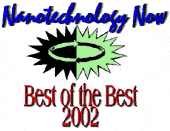
The Harrow Technology Report
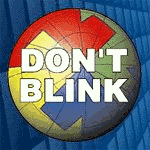
![]() Trends in Nanotechnology Weekly - from CMP Científica, and edited by Paul Holister.
Trends in Nanotechnology Weekly - from CMP Científica, and edited by Paul Holister.
![]() KurzweilAI.net Singularity, Robotics, AI, Immortality, Nanotech, Cloning, and more.
KurzweilAI.net Singularity, Robotics, AI, Immortality, Nanotech, Cloning, and more.
![]() The Nanotech Business Update Newsletter - from the San Francisco Consulting Group.
The Nanotech Business Update Newsletter - from the San Francisco Consulting Group.
Back To Top
MEDIA
|
Foresight
Once again, the folks at Foresight continue to inform, research, and call to action. They have been, and continue to be, the leaders in getting the word out to the public. Based on the efforts of Foresight Chairman and Founder Eric Drexler, President Christine L. Peterson, Vice President Ralph C. Merkle, Webmaster James Lewis, and the rest of the team at Foresight, this site [in combination with IMM] has become known as a catalyst for debate, and is generally recognized as the most complete technical reference as well. |

|
|
Institute for Molecular Manufacturing - IMM
Since 1991, the R&D and grant arm of Foresight. They are a nonprofit foundation, formed "to carry out research to develop MNT" and to "promote guidelines for research and development practices that will minimize risk from accidental misuse or from abuse of molecular nanotechnology." And in fact, that is just what they do, quite well! Visit them for their MNT images and descriptions - they are great! |

|
|
NanoDot
News and discussions of coming technologies. Contains discussion and posts, from Medicine to Investment to Future Applications -- up to date and well worth reading! |

|
| Small Times -- Big News In Small Tech |

|
| CMP Científica Integrated solutions provider for the Nanotechnology Community. |

|
| NanoelectronicsPlanet The Center for Nanoelectronics Business |

|
|
Nanotechweb Featuring articles by Tim Harper, founder of CMP Cientifica, Executive Director of the European NanoBusiness Association, and an advisor to the US NanoBusiness Alliance. |
|
| NanoMagazine Interviews by Sander Olson, covering nano-scale technology and molecular nanotechnology. |
|
| NanoApex |
|
Back To Top
NOTABLES
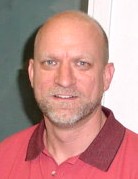
Mike Treder |
The Center for Responsible Nanotechnology™ (CRN) A new non-profit organization, formed to advance the safe use of molecular nanotechnology. The Center for Responsible Nanotechnology™ (CRN) was founded by Chris Phoenix and Mike Treder in December 2002. The vision of CRN is a world in which nanotechnology is widely used for productive and beneficial purposes, and where malicious uses are limited by effective administration of the technology. |
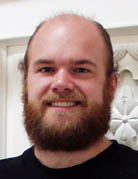
Chris Phoenix |
|
A great idea whose time has come - All Nano NEWS..All the Time. From Judith Light Feather, the President of the NanoNEWS Division of TNTG Inc. We wish Judith and company best fortunes, and encourage everyone to visit their site. Nano News TV Details and their Launch Announcement |
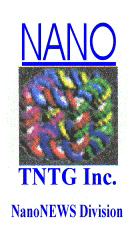
|
|
Phlesch Bubble awarded the IMM Computational Nanotechnology Prize It was certainly nice to see Lawrence Fields and Jillian Rose get the credit they so rightly deserve, for an outstanding animation. Check out their website, and be prepared to be amazed! |
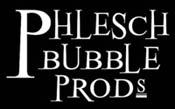
|
|
Nanomedicine -- Art Gallery -- Robert A. Freitas Jr. Complete Exhibit List. Here you will find the best of the best collection of images, along with names and descriptions. Superior quality graphics and understandable descriptions. Highly recommended to the novice and Nanotechnologist both.
|
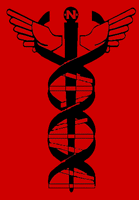
|
|
Nick Bostrom's website, with topics ranging from Transhumanism to the consequences of artificial intelligence, and more. Interesting and obviously well considered. A very good place to spend some of your valuable time. |
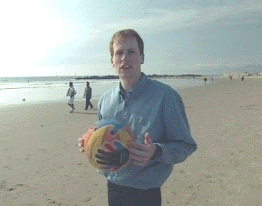
Nick Bostrom |
Back To Top
SCIENCE
Back To Top
DISCUSSION GROUP
Back To Top
PROMISING DISCOVERIES
Chip & Circuit Technology
![]() Stepping Up to Exteme Lithography
Stepping Up to Exteme Lithography
A revolutionary microprocessor technology developed by Lawrence Livermore and Veeco Instruments Inc. could increase the speed of personal computers by 10- to 20-fold and their memory capacity by 100- to 1,000-fold.
![]() IBM Announces World's Smallest Working Silicon Transistor
IBM Announces World's Smallest Working Silicon Transistor
IBM today announced the world's smallest working silicon transistor. With this transistor IBM has been able to push silicon to limits on a molecular scale not previously achieved. At six nanometers in length, this new transistor is at least 10 times smaller than the state-of-the-art transistors in production today. See also
IBM scientists build world's smallest operating computing circuits and
HP Announces Breakthroughs in Molecular Electronics
![]() IBM Creates World's Highest Performing Nanotube Transistors
IBM Creates World's Highest Performing Nanotube Transistors
IBM today announced it has created the highest performing nanotubes transistors to date and has proven that carbon nanotubes (CNTs), tube-shaped molecules made of carbon atoms that are 50,000 times thinner than a human hair, can outperform the leading silicon transistor prototypes available today.
![]() E-beam welding eyed for dense nanoscale circuits
E-beam welding eyed for dense nanoscale circuits
An international consortium of researchers believes its electron-beam method for joining nanotubes could be applied to the construction of ultradense circuits. See also Nano-Welding Creates Tiny Junctions
![]() Princeton builds tiniest tunnel,
reveals nanostamping process
Princeton builds tiniest tunnel,
reveals nanostamping process
In a paper published today in Applied Physics Letters, the group reported building the world's smallest enclosed channel, less than 10 nanometers wide. In the June 20 issue of Nature , NSL announced a new method for creating nanoscale structures on the molten surface of a silicon wafer. They are calling the process Laser-Assisted Direct Imprint (LADI).
![]() Charlie Lieber Raises the Stakes in the Development of Nanoscale Superlattice Structures and Nanodevices
Charlie Lieber Raises the Stakes in the Development of Nanoscale Superlattice Structures and Nanodevices
The paper -- which is entitled "Growth of Nanowire Superlattice Structures for Nanoscale Photonics and Electronics" -- demonstrates general methods for controlling the composition and charge of multiple materials on a single nanostructure.
Memory
There were so many promising discoveries in this category that we decided to highlight a few, and just link to the others.
![]() Disks set to go ballistic
Disks set to go ballistic
Researchers from the State University of New York at Buffalo have used an effect dubbed ballistic magnetoresistance to make a tiny prototype sensor that is 15 times as sensitive as the giant magnetoresistance sensors used in today's disk drives. "Due to the nanoscale of the sensor, bit size can be reduced to... terabit-per-square-inch densities". A CD-sized magnetic disk with such small bits could hold 1,800 gigabytes, or about 450 DVDs worth of information.
![]() Researchers around the world seek to store data on single atoms
Researchers around the world seek to store data on single atoms
SmallTimes December 04, 2002 Behold the mobile phone of the future: the atomic bit box. If researchers at IBM, Hewlett-Packard (HP) and at universities and startups around the world are right, only three years from now, mobile gadgets like cell phones, digital cameras, PDAs and MP3 music players will have storage densities a million times greater than the PC.
![]() UANews October 31, 2002 Imagine having all of the information recorded on a stack of 1,540 CDs on a disk the size of a single CD. Or visualize having all of the information recorded on a stack of 154 CDs written on a one-inch square chip.
UANews October 31, 2002 Imagine having all of the information recorded on a stack of 1,540 CDs on a disk the size of a single CD. Or visualize having all of the information recorded on a stack of 154 CDs written on a one-inch square chip.
Magnetic islands boost memory |
CALMEC Travels Long Road to Molecular Memory |
Scientists Prove Atomic Memory Concept |
More detail |
New Hard-Drive Tech Overcomes Magnetic Memory Problems |
Ultimate memory demoed |
DARPA researcher pursues 'nanomemory' |
Atom-level memory points to speed limit
General
![]() First quantum dots applied to living organism
First quantum dots applied to living organism
Quantum dots are nano-sized crystals that exhibit all the colors of the rainbow due to their unique semiconductor qualities. These exquisitely small, human-made beacons have the power to shine their fluorescent light for months, even years. But in the near-decade since they were first readily produced, quantum dots have excluded themselves from the useful purview of biology. Now, for the first time, this flexible tool has been refined, and delivered to the hands of biologists. See also Quantum dots may allow researchers to track proteins
![]() Deposition technique spins metal salt into pure gold
Deposition technique spins metal salt into pure gold
Researchers at Purdue University have tapped an inexpensive wet-chemistry method to deposit nanoscale patterns of gold, platinum or palladium directly on top of semiconductor chips.
![]() Selected 2002 Nanotechnology Activities Nanotechnology accomplishments for NSET/NNI
Selected 2002 Nanotechnology Activities Nanotechnology accomplishments for NSET/NNI
![]() Top 5 Nanotech Breakthroughs Of 2002 Josh Wolfe, The Forbes/Wolfe Nanotech Report
Top 5 Nanotech Breakthroughs Of 2002 Josh Wolfe, The Forbes/Wolfe Nanotech Report
![]() Top KurzweilAI.net News of 2002
Top KurzweilAI.net News of 2002
Back To Top
BIG THINKERS

Ray Kurzweil
The Singularity Is Near - Ray Kurzweil - the Video |
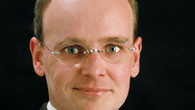
Ian Pearson
|
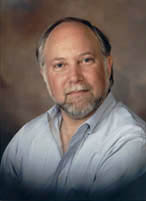
Jeff Harrow
Harrow Technology Report |
Back To Top
TOOLS & TOOL MAKERS
Veeco Metrology Group Metrology and process equipment systems for industry leaders in the semiconductor, data storage, telecom/wireless and scientific/research markets.
Veeco Launches SPM Probes e-Commerce Store
Nanoscience Instruments
STM image of three one-nm-diameter C60 molecules [buckyballs] adsorbed on Si. Courtesy: Dror Sarid, University of Arizona.
![]()

Phoenix, AZ, USA. Provides high quality nanoscience instrumentation, accessories and supplies to educators, researchers and engineers. Check out the
SPM Animation Gallery
The Nanomanipulator from the Center for Computer Integrated Systems for Microscopy and Manipulation (CISMM) at UNC Chapel Hill. Part of the Nanoscale Science Research Group (NSRG).
Images & Movies
Back To Top
POLICY MAKERS
![]() Sen. Ron Wyden (D-Ore.), Sen. Joe Lieberman (D-Conn.) and Sen. George Allen (R-Va.), for the
21st Century Nanotechnology Research and Development Act creating the National Nanotechnology Research Program. The bill was passed by the Senate Commerce Committee on September 19th, 2002, and awaits consideration by the full Senate. It would create a National Nanotechnology Research Program; form a Presidential National Nanotechnology Advisory Panel; establish a National Nanotechnology Coordination Office, which would provide administrative and technical support for the Advisory Panel and the Council; and launch a new Center for Societal, Ethical, Educational, Legal, and Workforce Issues Related to Nanotechnology. "My own judgment is the nanotechnology revolution has the potential to change America on a scale equal to, if not greater than, the computer revolution. I am determined that the United States will not miss, but will mine the opportunities of nanotechnology," Sen. Ron Wyden
Sen. Ron Wyden (D-Ore.), Sen. Joe Lieberman (D-Conn.) and Sen. George Allen (R-Va.), for the
21st Century Nanotechnology Research and Development Act creating the National Nanotechnology Research Program. The bill was passed by the Senate Commerce Committee on September 19th, 2002, and awaits consideration by the full Senate. It would create a National Nanotechnology Research Program; form a Presidential National Nanotechnology Advisory Panel; establish a National Nanotechnology Coordination Office, which would provide administrative and technical support for the Advisory Panel and the Council; and launch a new Center for Societal, Ethical, Educational, Legal, and Workforce Issues Related to Nanotechnology. "My own judgment is the nanotechnology revolution has the potential to change America on a scale equal to, if not greater than, the computer revolution. I am determined that the United States will not miss, but will mine the opportunities of nanotechnology," Sen. Ron Wyden
![]() U.S. Rep. Mike Honda (D-Calif.), for the Nanoscience and Nanotechnology Advisory Board Act of 2002. It would establish a nongovernmental advisory board to monitor and influence the National Nanotechnology Initiative and government agencies doing nanotechnology research. It has been generally well received, by business leaders and scientists.
U.S. Rep. Mike Honda (D-Calif.), for the Nanoscience and Nanotechnology Advisory Board Act of 2002. It would establish a nongovernmental advisory board to monitor and influence the National Nanotechnology Initiative and government agencies doing nanotechnology research. It has been generally well received, by business leaders and scientists.
Back To Top
BOOKS
Some old, some new, all valuable and informative.See our Nanotechnology Books section for images of the books listed below, as well as a comprehensive listing of other scientific and science fiction books.
|
|
||
|
|
||
| The latest news from around the world, FREE | ||
|
|
||
|
|
||
| Premium Products | ||
|
|
||
|
Only the news you want to read!
Learn More |
||
|
|
||
|
Full-service, expert consulting
Learn More |
||
|
|
||
